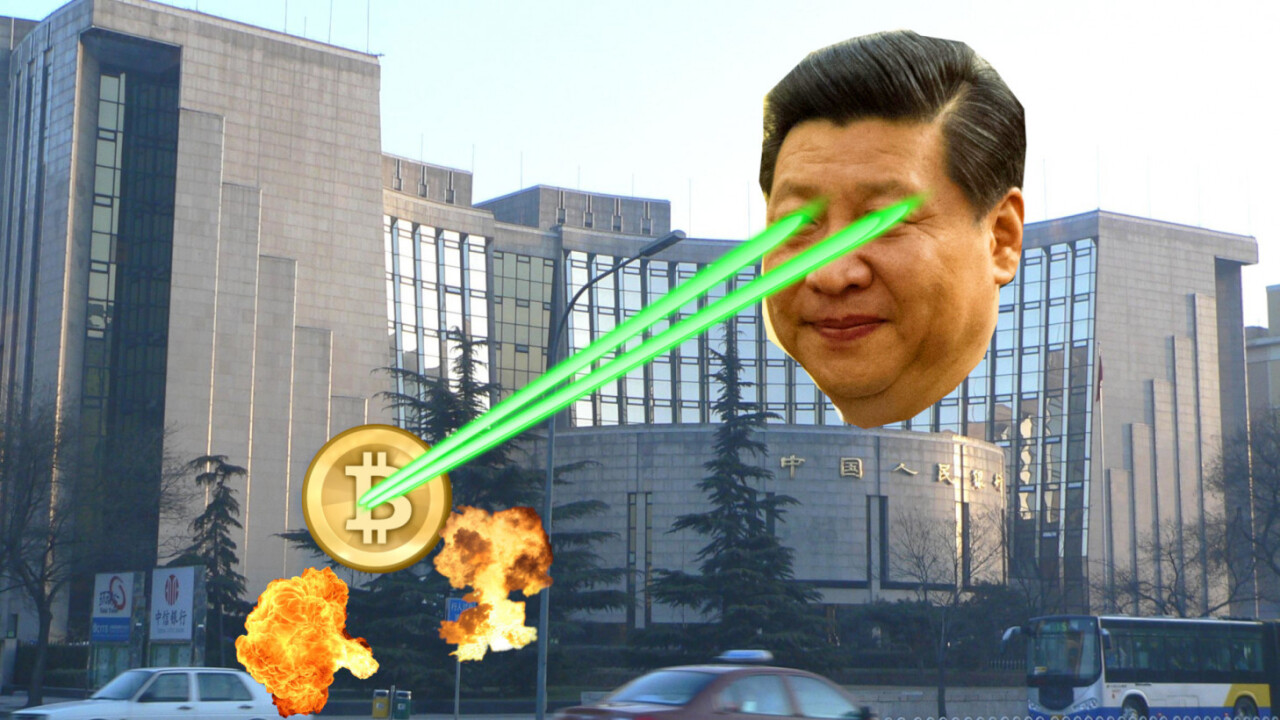
China’s central bank has hailed it’s cryptocurrency crackdown a complete success. Declared by the People’s Bank of China (PBoC) and reported by state media, data apparently shows that the Chinese currency is now involved in less than one percent of all Bitcoin trades worldwide.
So how did we get here? In September 2017, Renminbi-to-Bitcoin trades made up over 90 percent. Unnerved by the high volume, the government immediately outlawed fiat from being used in cryptocurrency purchases and even imposed travel bans on Huobi and OKCoin executives, two of the nation’s largest exchanges.
It wasn’t just the major players facing government throwback. 88 exchanges and 85 initial coin offerings (ICOs) – accounting for virtually the entire cryptocurrency services sector in China – have ceased operations since.
Huobi was forced to move its operations to the more crypto-friendly Singapore, while OKCoin, rebranded as OKEx, was embraced by the now blockchain-positive paradise Malta.
Binance too was suddenly chased to the Mediterranean island after receiving formal notices to cease operations in both China and Japan.
China also deemed ICOs to be an “illegal public finance” mechanism suited to money laundering and the illegal issuance of securities. Shortly after, supposedly almost a billion dollars, representing 90 percent of all investments, was returned to Chinese investors who had contributed to the 43 local ICOs conducted in the year preceding.
Many were simply transferring their Bitcoin to the now offshore exchanges and carried on trading – until February, when the government banned its citizens from any activity related to the trade and exchange of cryptocurrencies, blacklisting dozens of exchanges in a bid to curb access.
Although cryptocurrency activity is monitored in Hong Kong, the more adventurous mainland investors have been seeking overseas desks, smuggling Bitcoin back home to sell locally through private chat groups.
The crackdown has had marked success in driving away big-time players in cryptocurrency mining. In January, Bloomberg reported that Bitmain had moved its regional headquarters to Singapore, and had active mining facilities in both Canada and the US.
Now, in 2018, all of the world’s major players in crypto-mining are no longer in China – all forced to seek new homes across Europe and the Americas.
A wise move, considering in April, police stormed a large-scale Bitcoin mining operation in the city of Tianjin. 600 computers were confiscated in the raid – case doubling as “the largest power theft case in recent years,” reports Xinhua.
The intensity shown in eradicating cryptocurrency activity in China is somewhat puzzling, considering how quickly central agencies have adopted the blockchain. The governments own National Audit Office is preparing to improve its data infrastructure by blockchainifying it, and a national standardization committee is being formed by their Ministry of Industry and Information Technology.
Still, Jihan Wu, Bitmain’s cofounder and co-CEO, remains tight-lipped about his experiences with hardline Chinese regulators. In an interview with Forbes last month, he refused to give comment on the regulatory policies of the Chinese, noting “it’s too sensitive.”
And why would he? With Bitmain valued at an estimated $9 billion, there may be cause to tread lightly in today’s treacherous regulatory environment. Even the new de-facto homes for mining entrepreneurs are being filled to the brim with crypto-refugees. Canada’s largest utility, Hydro Quebec, reported it was unable to meet demand in the wake of the mass-exodus.
Get the TNW newsletter
Get the most important tech news in your inbox each week.





